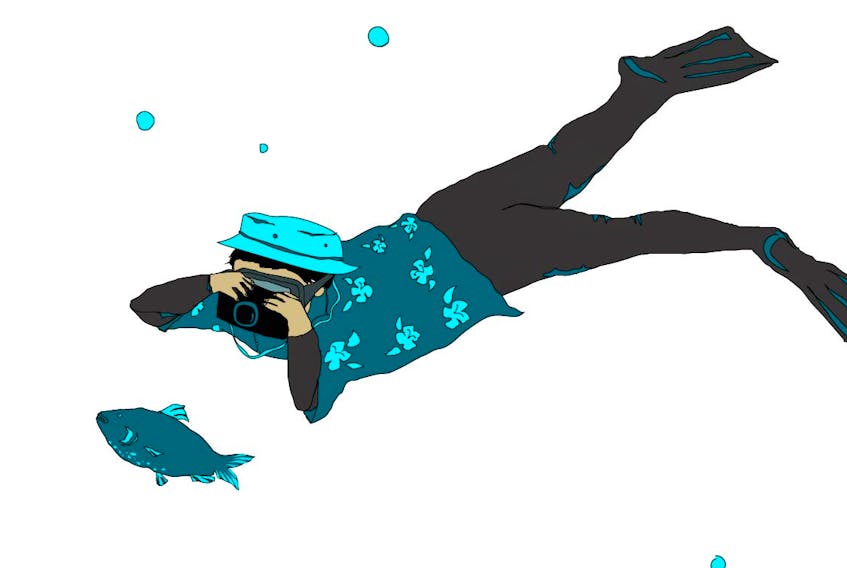When we think of the next frontier of adventure tourism, we tend to think of travel to outer space.
SpaceX rocket entrepreneur Elon Musk has visions of taking thrill seekers to the International Space Station and someday to the moon and even Mars.
But the next big thing in tourism might not be over us. It could very well be under us.
When you talk about immersive experiences - the theme of this edition of NOW - underwater tourism is the ultimate in immersion. It is more accessible financially and underwater holidays may not take as long to develop as a mainstream tourism option.
OK, true, underwater tourism is not exactly new.
Tourists have been travelling to marine destinations to enjoy Scuba diving amongst coral reefs and shipwrecks for many years. Snorkelling has also been a popular underwater pursuit.
But new technologies and innovations in ocean tourism have given rise to new underwater ocean activities such as submarine cruises and underwater hotels, restaurants and spas.
The idea is to submerge tourists into an aquarium-like environment where they can experience ocean landscapes and marine wildlife from the comfort of their own luxury hotel rooms.
Some operators refer to this form of tourism as “underwater safaris.” Others call the underwater destinations as “rainforests of the sea.”
Whatever the metaphor, it is inspiring tourism developers and capturing the imaginations of adventure travellers for whom the five-star all-inclusive resort experience is not enough.
A big part of this market segment will be Millennials and the up-and-coming Gen Z who are hungry for new experiences and adventures when they are not working. A major motivation is learning about about marine habitats and organisms.
Atlantic Canada is prime real estate for this new brand of tourism with its proximity to the ocean and its long history of ocean-side tourism and established ocean-based industry.
Underwater tourism is still an emerging industry globally but already there are examples and new models and offerings that give travellers an opportunity to move through marine landscapes and experience the wildlife of the sea.
Many museums and aquariums around the world now feature walking tunnels surrounded by water with sharks, rays, turtles and schools of tropical fish swimming around guests.
Many submarine operations provide underwater platforms for tourist to view the underwater geographic features and animal life.
The Chinese are working on a high-speed submarine that will propel travellers across the Pacific Ocean in two hours.
In places like Fiji, Mexico and Sri Lanka there are underwater resorts that give guests luxury accommodations, complete with chef-catered meals, butlers and restaurants set in oxygenated domes which give 180-degree views of the surrounding ocean.
Some resorts are even offering couples underwater weddings for a unique nuptial experience.
At the moment, these resorts are not cheap, costing tourists tens of thousands of dollars per week.
Some scientists have raised alarm bells that the rise of underwater tourism will inflict damage on fragile seabeds and marine habitats which are already under pressure.
But other marine scientists have pointed out that underwater tourism is an important form of education at a time when oceans are in peril due to climate change, plastic pollution and acidification.
If ocean tourism is planned as a sustainable activity and interfaces between humans and ocean ecosystems are managed and properly regulated, the outcomes could produce returns for ocean awareness.
The oceans are critical to human life and existence, providing protein sources and jobs for millions around the world.
Degradation will disrupt communities and economies based on the ocean and placing people in the middle of marine ecosystems where they can see the beauty and complexity for themselves will raise awareness for the importance of oceans.
It will also create jobs and a new stream of tourism.
Underwater resorts may be the pursuit of the rich for now and it is probably ten years away as a mainstream part of the tourism industry.
But as more operations bring underwater pursuits and developments on line, more tourists will be attracted to the concept and the price will come down, and underwater holidays will be a realistic option for the vacationing middle classes.









